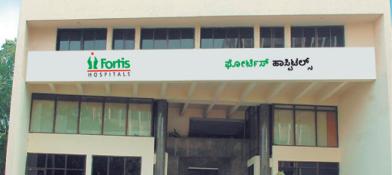Cornea transplant
A cornea transplant also called keratoplasty, or a corneal graft refers to an operation to excise all or portion of a damaged cornea and substitute it with healthy donor tissue. This procedure can be utilised to:
- improve sight,
- relieve pain, as well as
- treat severe infection or damage.
One of the most predominant reasons for a cornea transplant is a condition known as keratoconus, which causes the cornea to alter shape.
What is the cornea and what does it do?
The cornea – acts as a window to the eye and is the clear outer layer at the front of the eyeball.
The colored iris as well as the pupil (black opening in the middle of the colored portion of eye) can be observed through the cornea.
The cornea portion of the eye aids to focus rays of light on to the retina (the light-sensitive film behind the eye). This "image" is then passed on to the brain.
When the cornea portion of the eye is damaged, it can turn less transparent, or its shape can alter. This can inhibit light reaching the retina and causes the image transmitted to the brain to be distorted or blurred.
How is a transplant carried out?
The type of cornea transplant patient will undergo will rely on which portion of the cornea is damaged or how much of the cornea requires replacing.
The options comprise:
- deep anterior lamellar keratoplasty (DALK) – substituting or reshaping the outer and middle (front) cornea layers.
- endothelial keratoplasty (EK) – substituting the deeper (back) layers of the cornea.
- penetrating keratoplasty (PK) – a full-thickness transplant
A cornea transplant can be performed under general anesthetic (where patient is unconscious) or local anesthetic (where the site is numbed, and patient is awake).
The surgery typically takes less than 60 minutes and based on circumstances, patient can either leave hospital the same day or stay overnight. If surgery comprises the outer cornea transplant, the new outer cornea is held in place with the aid of stitches, which typically remain in for more than 1 year duration.
An endothelial transplant (EK) does not need stitches and is held in place by an air bubble until a few days later, when it naturally adheres to the deep layer of the cornea.
Days or weeks before the cornea transplant
- The ophthalmologist will discuss with the patient about corneal transplant surgery.
- Once a patient decides to undergo a corneal transplant, a date for surgery will be selected. That date may change if a suitable donor cornea is not ready for the patient at that time.
- Patients may require stopping utilization of blood thinners prior to surgery. Patients may be required to visit a primary care doctor for a physical examination and perhaps other tests. This is to ensure patient is healthy enough to have the transplant surgery.
- Patient will not be able to drive post the transplant surgery. Patients should make provisions for someone to drive him/her home post-surgery.
The day of cornea transplant
A corneal transplant is conducted as an outpatient procedure. Here is what will happen just prior to and during corneal transplant surgery.
Eye drops will be put in the patient's eyes. The patient may be given other medication to aid him/her relaxation. Eye surgeons utilise either local or general anaesthesia, so patients do not feel pain. They then put a device on the patient's eye to keep it open. Even though the patient's eye is open, the patient will see very little or nothing at all because of the anaesthesia.
The eye surgeon will have chosen how to transplant the healthy donor cornea based on specific requirements. In a few instances, they may excise a circular portion of the patient's cornea and substitute it with a resembling portion of the donor cornea, stitching it into place. Certain times they will excise only a skinny layer of cells from the front of the cornea, substituting them with donor tissue and stitching it into place.
In other scenarios, only the damaged inner layer of the cornea is excised, and a fine disc of healthy donor tissue is kept on the back surface of the cornea. An air bubble is then inserted in the eye to force this new layer of cells into place so the cornea can restore properly.
Occasionally, ophthalmologists repair other eye issues during similar surgery, like cataracts.
Post-surgery, an ophthalmologist usually tapes a shield over patient’s eye to keep it safely covered. The Patient will be monitored post-surgery to make sure the patient recovers from the anaesthesia and can go home safely.
Ophthalmologists will explain what to do to care for eyes at home post-surgery.
After cornea transplant
The day post corneal transplant surgery, patient will need to go back to ophthalmologist's office to have his/her eyes checked.
The stitches from surgery may or may not be required to be removed. This depends on how promptly patient heal, the health of his/her eye, and the type of stitches used.
As patient recovers from surgery, these are things patient needs to do to care for his/her eye:
- Utilise the eye drops exactly as the ophthalmologist prescribed.
- Do not press on or rub eyes.
- If required, take over-the-counter pain medication.
- Wear eyeglasses or an eye shield to shield eyes.
Patient should discuss with ophthalmologist about when he/she can get back to doing normal regular routine.
Depending on patient's transplant, he/she may have to lie on back for a while post-surgery. This aids the new donor tissue stay in place.
Risks: Cornea Transplant
While approximately 40,000 are conducted annually, complications can occur, which comprise:
- Hyphema (Bleeding in the eye)
- Cataracts
- Detachment of the new cornea
- Inflammation of eye
- Refractive errors requiring glasses or contact lenses.
- New onset or worsening of glaucoma.
- Infection within the eye (endophthalmitis)
- Infections on the eye's surface (corneal ulcer)
- Detachment of retina
To summarise, Corneal transplantation refers to one of the most successful tissue/organ transplant procedures. Fortunately, majority of individuals who have corneal transplant will go on to have improved vision for several years.
Popular Searches :
Hospitals: Cancer Hospital in Delhi | Best Heart Hospital in Delhi | Hospital in Amritsar | Hospital in Ludhiana | Hospitals in Mohali | Hospital in Faridabad | Hospitals in Gurgaon | Best Hospital in Jaipur | Hospitals in Greater Noida | Hospitals in Noida | Best Kidney Hospital in Kolkata | Best Hospital in Kolkata | Hospitals in Rajajinagar Bangalore | Hospitals in Richmond Road Bangalore | Hospitals in Nagarbhavi Bangalore | Hospital in Kalyan West | Hospitals in Mulund | Best Hospital in India | | Cardiology Hospital in India | Best Cancer Hospital in India | Best Cardiology Hospital in India | Best Oncology Hospital In India | Best Cancer Hospital in Delhi | Best Liver Transplant Hospital in India
Doctors: Dr. Rana Patir | Dr. Rajesh Benny | Dr. Rahul Bhargava | Dr. Jayant Arora | Dr. Anoop Misra | Dr. Manu Tiwari | Dr. Praveer Agarwal | Dr. Arup Ratan Dutta | Dr. Meenakshi Ahuja | Dr. Anoop Jhurani | Dr. Shivaji Basu | Dr. Subhash Jangid | Dr. Atul Mathur | Dr. Gurinder Bedi | Dr. Monika Wadhawan | Dr. Debasis Datta | Dr. Shrinivas Narayan | Dr. Praveen Gupta | Dr. Nitin Jha | Dr. Raghu Nagaraj | Dr. Ashok Seth | Dr. Sandeep Vaishya | Dr. Atul Mishra | Dr. Z S Meharwal | Dr. Ajay Bhalla | Dr. Atul Kumar Mittal | Dr. Arvind Kumar Khurana | Dr. Narayan Hulse | Dr. Samir Parikh | Dr. Amit Javed | Dr. Narayan Banerjee | Dr. Bimlesh Dhar Pandey | Dr. Arghya Chattopadhyay | Dr. G.R. Vijay Kumar | Dr Ashok Gupta | Dr. Gourdas Choudhuri | Dr. Sushrut Singh | Dr. N.C. Krishnamani | Dr. Atampreet Singh | Dr. Vivek Jawali | Dr. Sanjeev Gulati | Dr. Amite Pankaj Aggarwal | Dr. Ajay Kaul | Dr. Sunita Varma | Dr. Manoj Kumar Goel | Dr. R Muralidharan | Dr. Sushmita Roychowdhury | Dr. T.S. MAHANT | Dr. UDIPTA RAY | Dr. Aparna Jaswal | Dr. Ravul Jindal | Dr. Savyasachi Saxena | Dr. Ajay Kumar Kriplani | Dr. Nitesh Rohatgi | Dr. Anupam Jindal
Specialties: Heart Lung Transplant | Orthopedic | Cardiology Interventional | Obstetrics & Gynaecology | Onco Radiation | Neurosurgery | Interventional Cardiology | Gastroenterologist in Jaipur | Neuro Physician | Gynecologist in Kolkata | Best Neurologist in India | Liver Transfer | Best Cardiologist in Delhi























